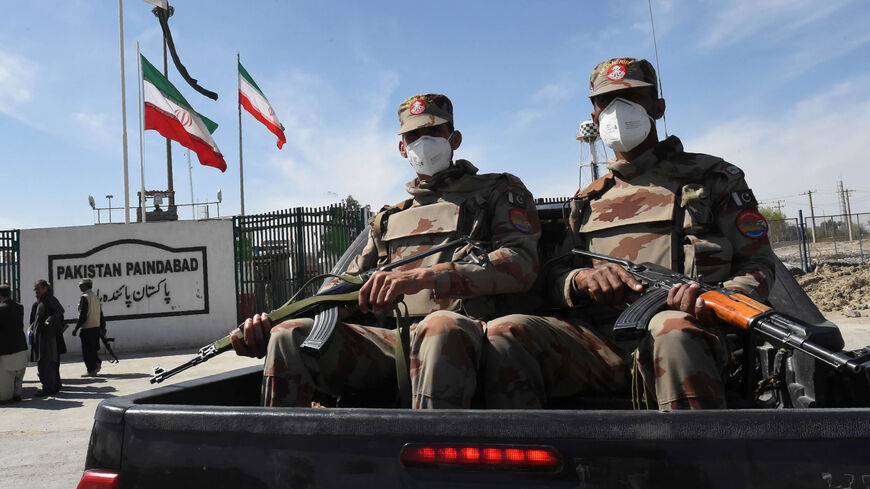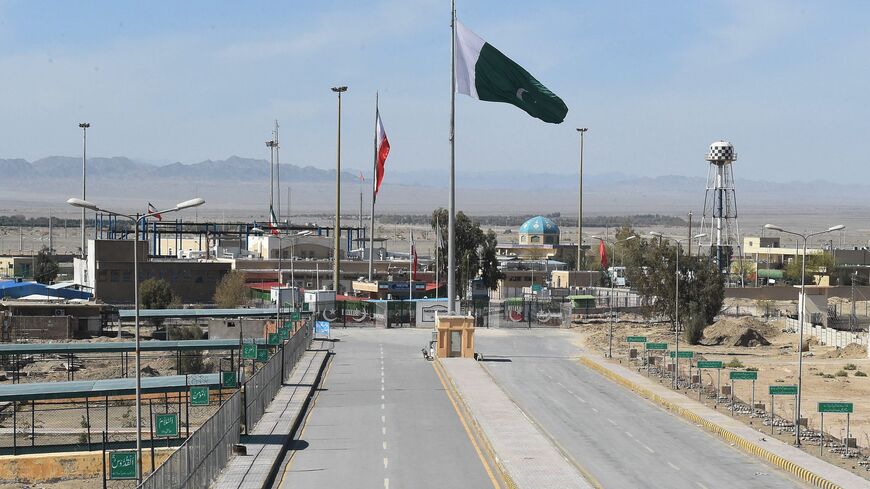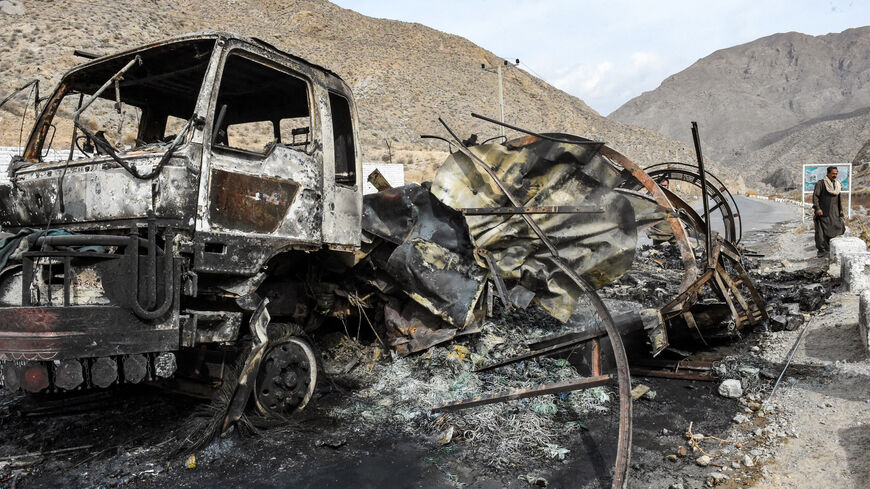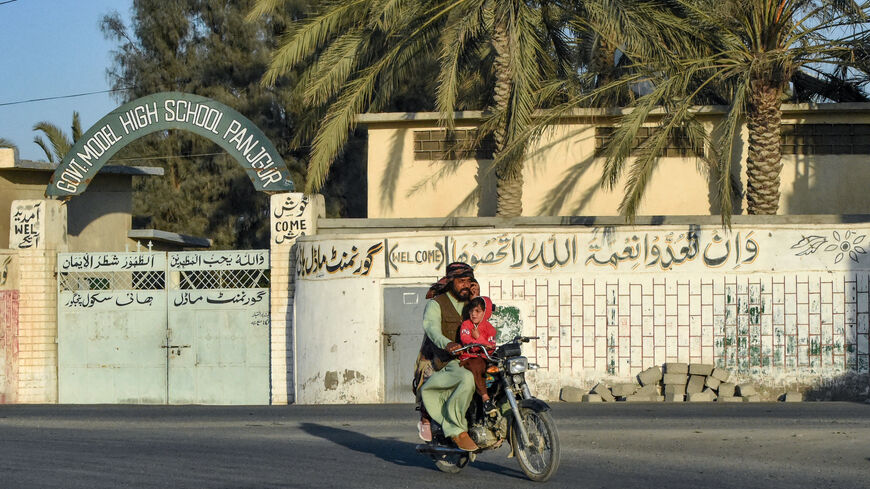Pakistan conducts strikes inside Iran as China, Turkey call for restraint
The region is already at a boiling point as the Israel-Hamas war continues to reverberate across the Middle East, with attacks in Yemen, Syria, Iraq and Lebanon.
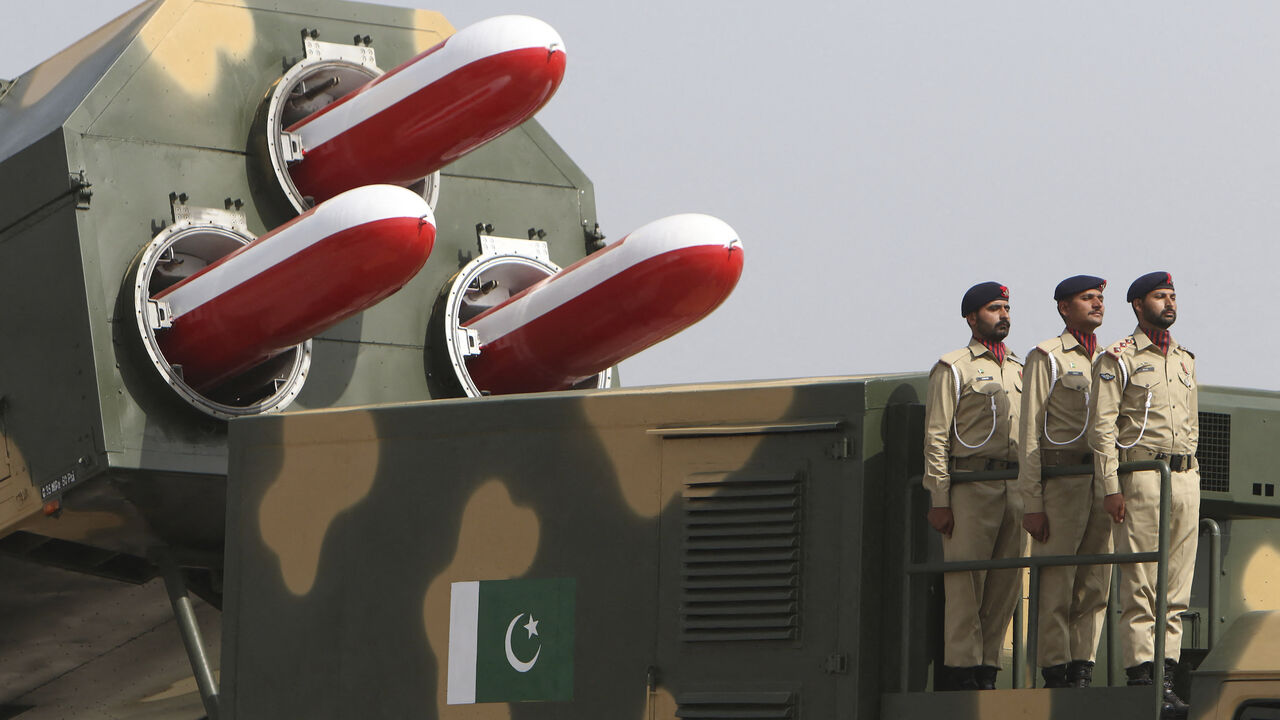
Pakistan launched a series of airstrikes inside Iran against what it said were “terrorist hideouts” early on Thursday, two days after Tehran conducted strikes on Pakistani territory.
“Pakistan undertook a series of highly coordinated and specifically targeted precision military strikes against terrorist hideouts in Siestan-o-Baluchistan province of Iran,” the Pakistani Foreign Ministry said in a press release.
It added that several militants were killed during the “intelligence-based operation,” without specifying the number.
The ministry said the strikes came in response to Iran’s “lack of action” over Pakistan’s concerns about safe havens in the Sistan and Baluchistan province used by armed militants of Pakistani origin who threaten Islamabad’s national security.
A Pakistani intelligence source told Reuters that the targeted militants belong to the Baluchistan Liberation Front, which seeks independence for Pakistan’s Baluchistan province. The separatist group has been behind several attacks against civilians and government interests in the province in the past years.
Iranian media reported several explosions in and around the border village of Saravan early Thursday. Iran’s Interior Minister Ahmad Vahidi told reporters that nine people were killed in the attack, including three women and four children, all non-Iranians.
Iran's Foreign Ministry spokesperson Nasser Kanaani condemned the attack carried out by Pakistan near the border region, the semi-official Mehr News Agency reported. Kanaani further said the Pakistani charge d'affaires in Tehran was summoned to the ministry for an explanation.
TKD MONITORING: A video uploaded by news outlets of Saravan city at dawn shows at least one site hit by Pakistan early this morning. Multiple bodies are under the debris, it states. Saravan city in Sistan wa Balochistan province of Iran is approximately 200 kilometres from… pic.twitter.com/LrLr58iMBO
— The Khorasan Diary (@khorasandiary) January 18, 2024
Pakistan insists the operation aimed to ensure its “own security and national interest.”
“Pakistan fully respects the sovereignty and territorial integrity of the Islamic Republic of Iran,” the Foreign Ministry statement stressed.
Mounting tensions
The Pakistani move comes after Iran struck on Tuesday sites belonging to Jaish al-Adl, a Sunni armed group, in Pakistan’s Baluchistan using missiles and drones. Islamabad said the attack killed two children.
Jaish al-Adl seeks greater rights for Sistan and Baluchistan province, which is home to Iran’s Sunni Baluchi minority. The group operates on both sides of the Iran-Pakistan border and has launched multiple attacks against Iran's Islamic Revolutionary Guard Corps and security forces in the Sistan and Baluchistan province over the years.
Iran and Pakistan share a roughly 900-kilometer (559-mile) border, and maintain relatively cordial relations. However, tensions often erupt as both countries exchange accusations of harboring extremist groups that launch attacks against the other. But this week’s cross-border fire marks a serious escalation.
Pakistan downgraded its diplomatic ties with Iran and recalled its ambassador to Tehran on Wednesday in protest against the Iranian attack on its soil.
Iranian Foreign Minister Hossein Amir-Abdollahian defended the attack. Speaking at the World Economic Forum in Davos, he said that no Pakistani national was targeted in the Iranian strikes, adding that they hit “Iranian terrorists on the soil of Pakistan.”
The Iranian-Pakistani flare-up deepens the instability in the Middle East, where the Israel-Hamas war continues to spill over across the region. Iran has conducted strikes in Iraq, where it claims to have hit an Israeli espionage center, and in Syria targeting alleged Islamic State sites.
The Iranian-backed Houthis, meanwhile, have been launching repeated drone and missile attacks against commercial vessels in the Red Sea in support of the Palestinians in the Gaza Strip. The United States has responded by launching four rounds of strikes against Houthi military sites inside Yemen within a week.
In Lebanon, the heavily armed Iran-backed Hezbollah group has been engaged in heavy exchanges of fire with the Israeli army along the border with Israel since the Gaza war began in early October.
As concerns are growing over the widening conflict, China called on both Iran and Pakistan to exercise restraint to avoid any escalation.
“China is willing to play a constructive role in de-escalating the situation if it is deemed necessary,” Chinese Foreign Ministry spokesperson Mao Ning said at a press conference in Beijing on Thursday following the Pakistani strikes.
Mao went on to say that Iran and Pakistan were “friendly countries to China, holding significant influence.”
In similar comments, Turkey’s Foreign Minister Hakan Fidan called for restraint in separate phone calls with his Iranian and Pakistani counterparts, Hossein Amir-Abdollahian and Jalil Abbas Jilani, on Thursday.
“Both sides said that they did not want to see further escalation and that they had the tensions under control,” Fidan said, speaking at a joint press conference with his Jordanian counterpart, Ayman Safadi, in Amman.
“As for Turkey, we will continue to do whatever is necessary to reduce the tensions between Pakistan and Iran,” he added.



